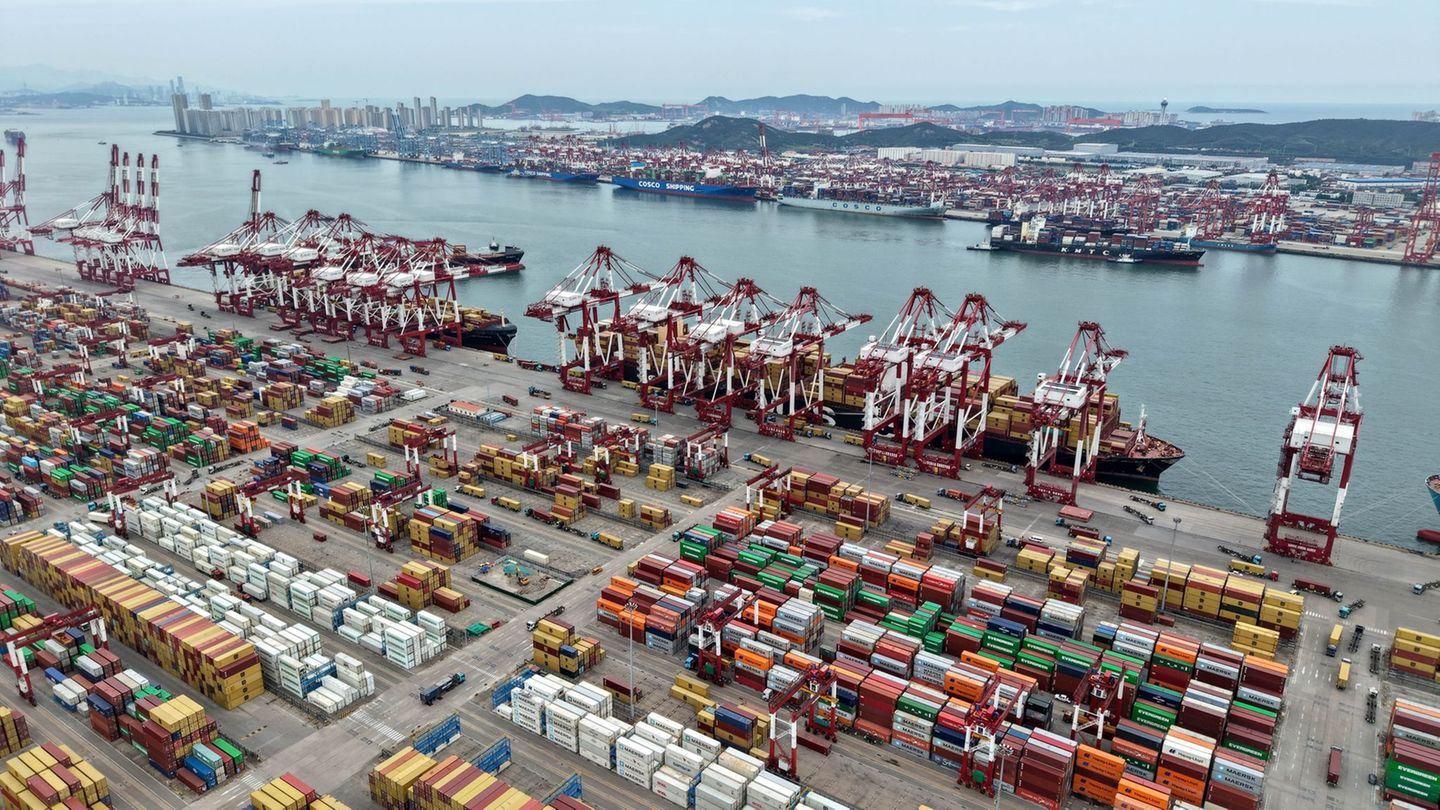More competition and more obstacles: German companies have to arm themselves against the competition there in China. But from the Chamber of Commerce’s point of view, companies face a number of problems.
German companies are facing more and more competition in China. According to a survey by the German Chamber of Commerce Abroad (AHK) in China, 46 percent of the companies surveyed consider it likely or very likely that Chinese companies could take the lead in their industry in terms of innovation within five years. Five percent of respondents said this was already the case. “Competition is getting stronger. Chinese companies are getting better,” said Ulf Reinhardt, AHK CEO in China, on Wednesday in Beijing.
“The Chinese competitors did not sleep during Covid,” said Jens Hildebrandt, managing AHK board member. Even before the pandemic, according to AHK data, German companies did not expect their Chinese competitors to be innovation leaders in their industry.
More research for competitiveness
The Germans have to make an effort in the market of the world’s second largest economy. “Germany and German companies are ready for more competition with China and its companies, as long as this competition takes place according to fair rules, enables transparent market access and is not based on distorting subsidies,” said Stephan Grabherr, Germany’s deputy ambassador to China.
Almost half (46 percent) of the 566 companies surveyed said they cooperate with Chinese partners or customers in order to remain competitive. 42 percent want to invest in their research and development. As a rule, this means developing and producing products in China for Chinese customers, said Reinhardt.
China is also struggling
But China is also struggling. The economy of the country with around 1.4 billion inhabitants is no longer growing as it used to. In 2023, economic growth of 5.2 percent exceeded the government’s target of 5.0 percent. But this year, according to the World Bank, the increase could be lower at 4.5 percent. The Chinese consume less domestically and the export-driven economy sells fewer products with traditionally strong trading partners abroad.
This is also reflected in the expectations of German companies. According to the AHK survey, 83 percent believe that the economic trend in China is pointing downwards, with 64 percent expecting a recovery in one to three years. More than half (54 percent) think that China is becoming less attractive as an investment location. Nevertheless, just as many want to continue to invest money in their China business. According to the information, the majority of those willing to invest do so in order to remain competitive.
German companies feel disadvantaged
Around 5,000 German companies work in China, of which 2,100 are AHK members. Around a third of those who took part in the survey between September 5th and October 6th, 2023 came from the mechanical engineering and industrial machinery sector. Around one in five (21 percent) works in the automotive sector. 69 percent of companies have fewer than 250 employees.
However, according to the survey, German companies feel disadvantaged. Around one in three companies surveyed felt that they were hindered by legal uncertainties. An often-mentioned problem, for example, is the opaque regulations for the transfer of personal data across the border abroad. If more investments are to be made in China, legal transparency is needed to build trust among investors, said Hildebrandt.
Invest more for less risk
Just over one in five said they were treated unequally compared to their Chinese competitors. Public tenders seem to be a problem: 53 percent of the companies that took part saw themselves hindered by a lack of transparency or preferential treatment for Chinese applicants.
In addition, global conflicts and weak economic development in China are causing some companies to hedge their bets. 44 percent of those surveyed said that their headquarters were already trying to reduce the risk in China business. Most of them are setting up supply chains independent of China or an additional business outside of China. Other companies, on the other hand, want to reduce their risk by doing more research and development in China.
Source: Stern




